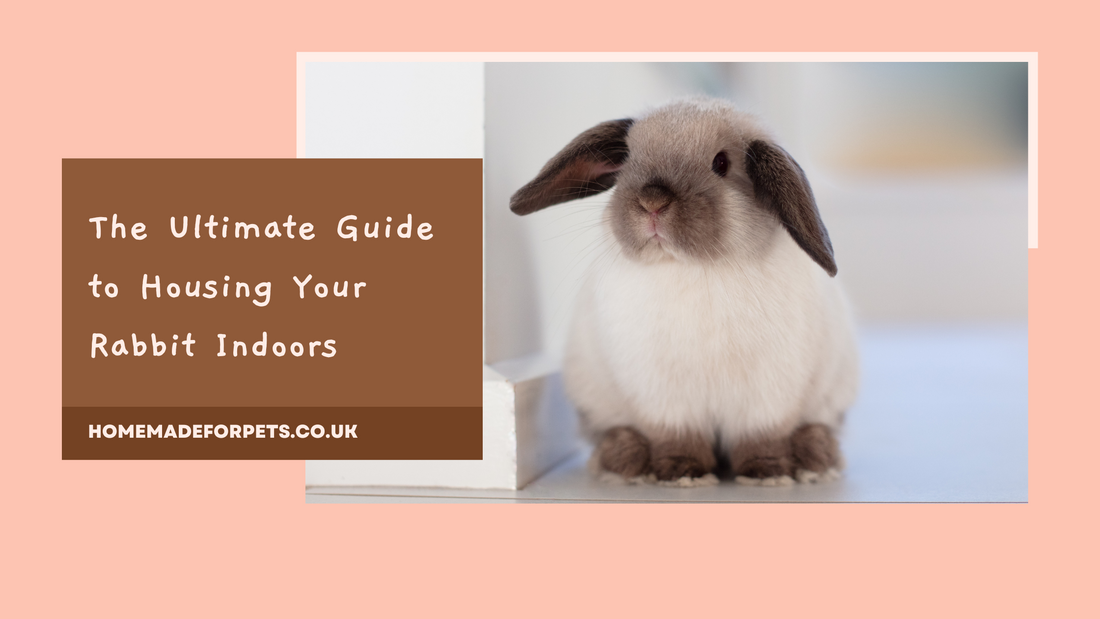
The Ultimate Guide to Housing Your Rabbit Indoors:
Share
Rabbits are social and intelligent animals that make great indoor pets. Housing rabbits indoors is becoming increasingly popular as it provides them with a safe, comfortable, and interactive environment where they can thrive.
Indoor Rabbit Housing Basics:
When setting up an indoor rabbit housing, you need to consider the following:
-
Space: Rabbits need plenty of space to move around, play and exercise. The minimum recommended size for an indoor rabbit housing is 3x2x1m high for a pair of medium-sized rabbits. The space should allow them to stretch out fully, stand up on their hind legs, and move around without bumping into anything.
-
Flooring: The flooring of the housing should be soft, solid, and non-slip to prevent injuries. A soft mat, carpet, or PVC tiles are suitable options. Avoid using wire mesh flooring as it can cause injuries to the rabbits' feet.
-
Hideaways: Rabbits need a place to hide and rest. A cardboard box or a wooden castle can make great hideaways for rabbits. They should be large enough for the rabbits to stretch out fully, but not too large to prevent them from feeling secure.
-
Enrichment: Rabbits are active and intelligent animals that need mental and physical stimulation. Providing them with toys, tunnels, and hiding places will keep them entertained and prevent boredom.
-
Litter tray: Rabbits can be litter trained, and providing them with a litter tray will make it easy for them to keep their living area clean. The tray should be large enough for the rabbits to use comfortably and should be cleaned regularly.
-
Ventilation: Good ventilation is essential to prevent the buildup of ammonia and to maintain a fresh and healthy environment. A window or an air purifier can help to maintain good air quality.
-
Diet: Rabbits need a balanced diet of hay, fresh vegetables, and a small amount of rabbit pellets. Water should be provided at all times.
Benefits of indoor rabbit housing:
-
Safety: Housing rabbits indoors keeps them safe from predators, diseases, and extreme weather conditions.
-
Bonding: Living indoors with their owners allows rabbits to build a strong bond with them and to become a part of the family.
-
Health: Indoor rabbits are less likely to develop respiratory infections or external parasites.
-
Comfort: An indoor environment provides rabbits with a comfortable and clean living space.
-
Cleanliness: Indoor rabbit housing is easier to maintain and keep clean.
Housing rabbits indoors can provide them with a safe, comfortable, and interactive environment where they can thrive. When setting up an indoor rabbit housing, it is essential to consider the space, flooring, hideaways, enrichment, litter tray, temperature, ventilation, and diet. Providing rabbits with an indoor housing has many benefits, including safety, bonding, health, comfort, and cleanliness.
